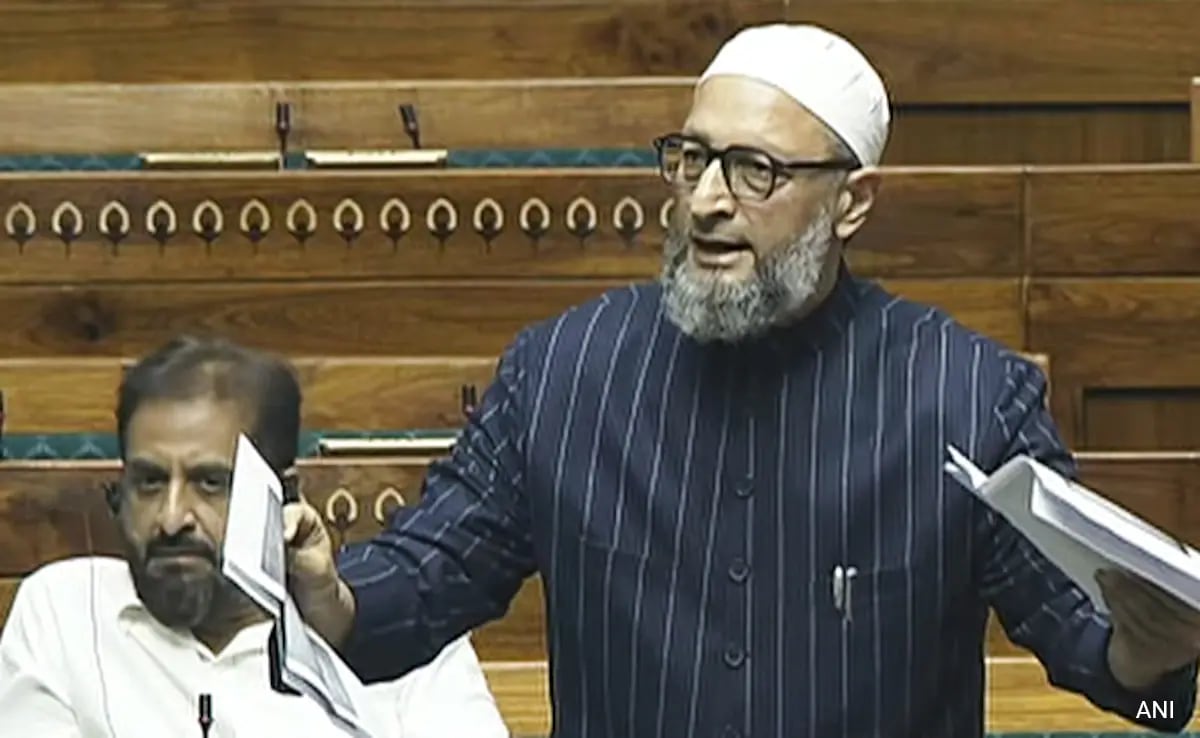Coming out all guns blazing at the BJP-led Centre during a debate in the Lok Sabha on a resolution on the opening of the Ram Temple in Ayodhya, AIMIM leader Asaduddin Owaisi on Saturday said he has the highest respect for the deity but ‘hates’ Nathuram Godse, the assailant who fatally shot Mahatma Gandhi.
Bristling at the ruling BJP during the discussion on the Ram Temple in the Lower House, the AIMIM MP said, “I have the highest respect for Lord Ram but hate Nathuram Godse because he killed the person whose last words were ‘Hey Ram’.”
Taking the attack to the ruling party at the Centre a notch higher, Mr Owaisi demanded that the BJP come out with a clarification on whether the government has a ‘religion of its own’.
“I want to ask today: is this government under the leadership of PM Modi for a particular community, the practitioners of a certain religion or the entire country? Does this government have a religion of its own? I believe that this country does not and should not stand for any particular religion,” Owaisi said.
The AIMIM chief further called on the government to come clean on whether the resolution on the opening of the Ram Temple in Ayodhya and the ‘Pran Pratishtha’ of the deity on January 22 was meant merely to mark the triumph of one religion over the other.
“Through this resolution on the January 22nd event in Ayodhya, is this government sending out a message that it marked the triumph of one religion over the other? What larger message are they sending out to the 17 crore Muslims in the country?” the AIMIM leader asked.
Also lashing out at the BJP for allegedly labelling leaders from the minority community after Muslim invaders and rulers, Mr Owaisi asked, “Am I a spokesperson for Babar, Jinnah or Aurangzeb?”
The Rajya Sabha, meanwhile, also held a discussion on the ‘Pran Pratishtha’ ceremony of Shri Ram Lalla in Ayodhya on the last day of the 17th Lok Sabha.
Taking the floor in the Upper House during the discussion, BJP national president JP Nadda said the ‘Pran Pratishtha Day’ marked the resurgence or rebirth of the country’s spiritual and cultural conscience.
“When we speak of the 500-year-old history, it was that of slavery and oppression. However, January 22, 2024 will go down as a day of rebirth and resurgence of the country’s spiritual and cultural conscience. This day will remain memorable for thousands of years,” Mr Nadda said.
